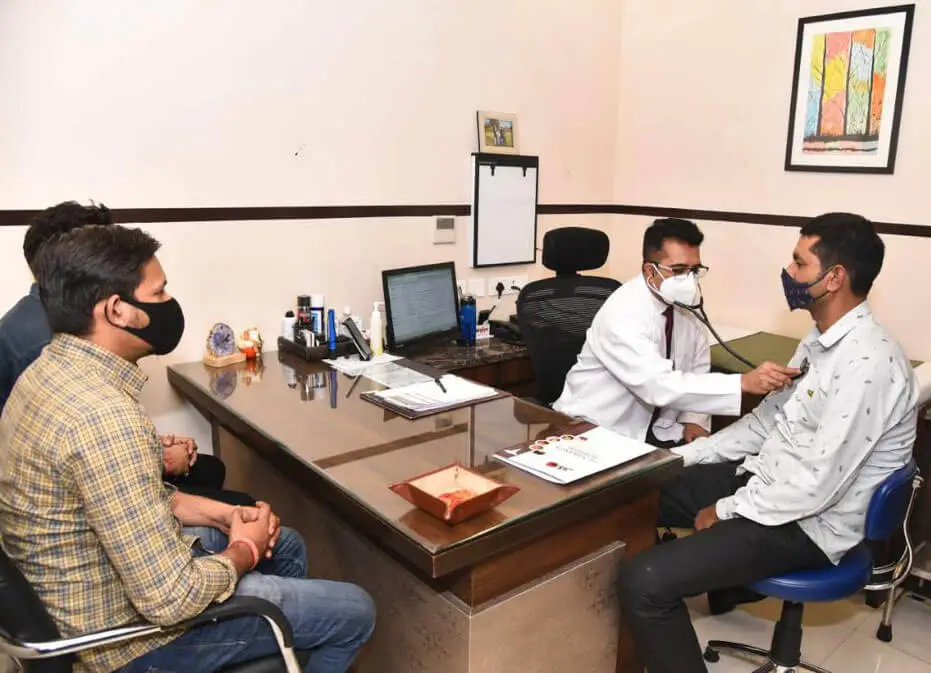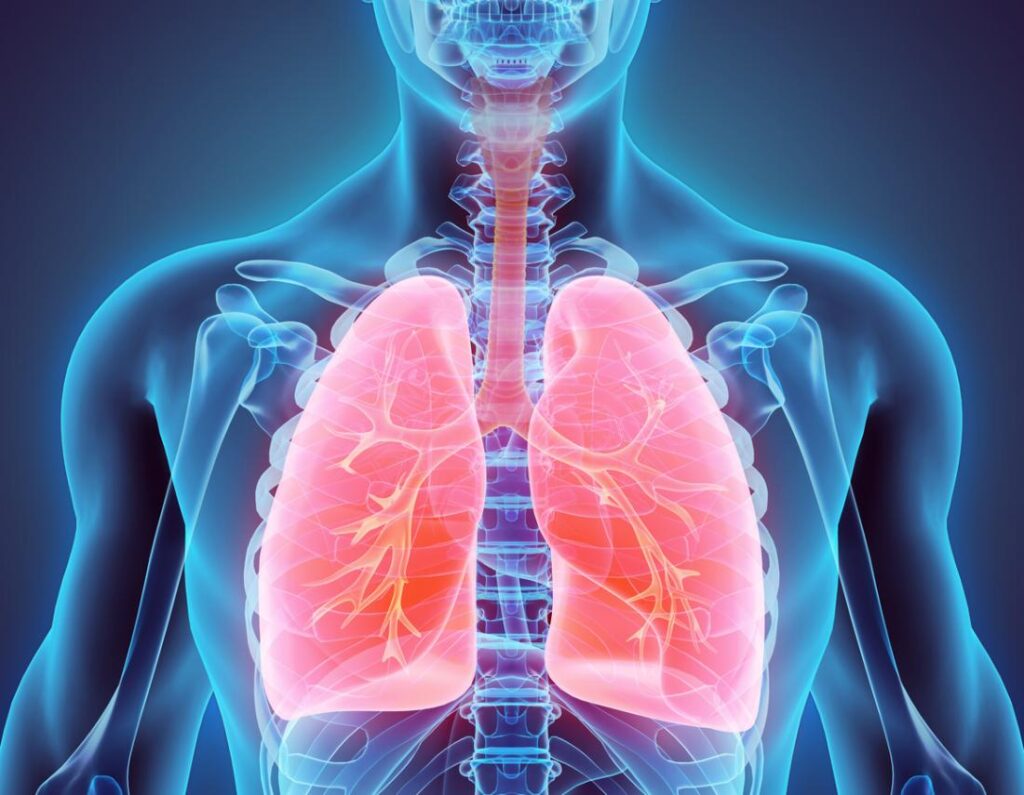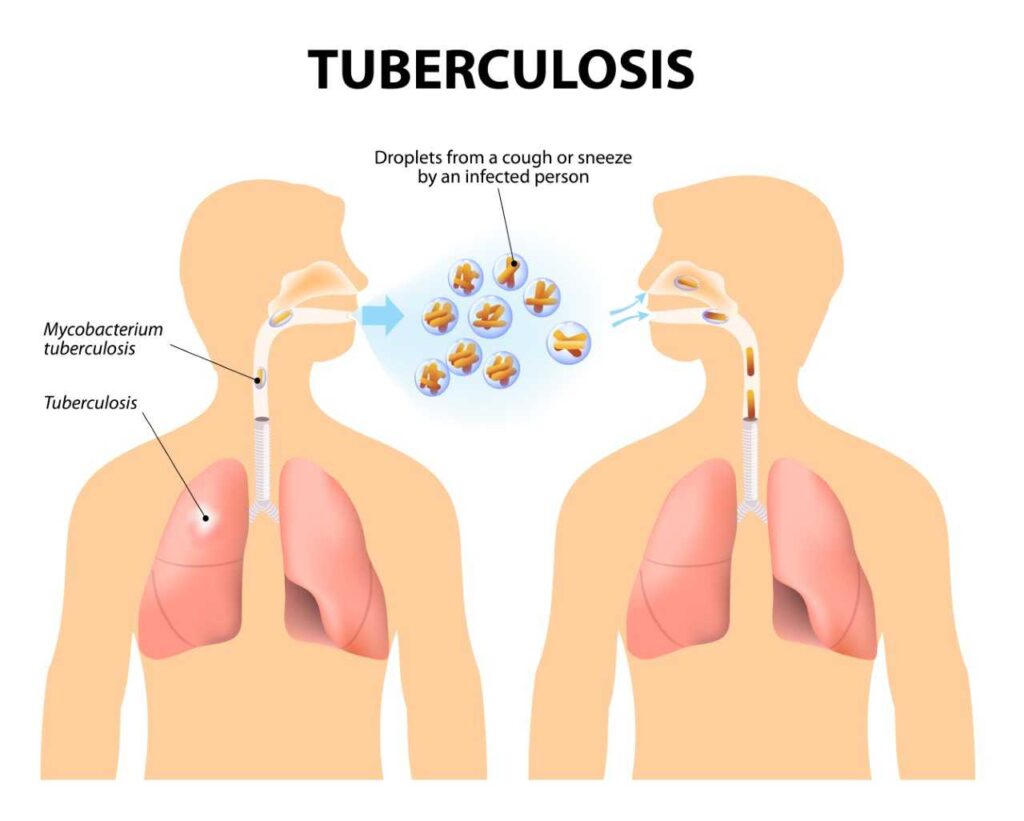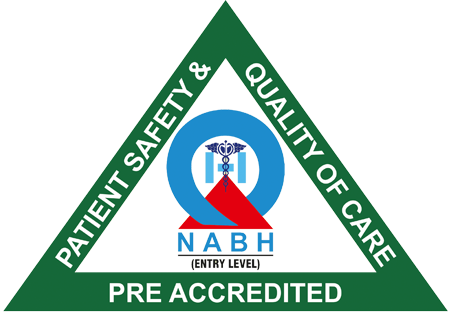Best Pulmonologist in Jaipur

Have you been feeling short of breath or coughing lately? If yes, then you must visit the best pulmonologist in Jaipur for proper diagnosis and intervention.
Dr. Rajeev Narang is the best pulmonologist in Jaipur and has a vast experience of 18+ years in the field of respiratory medicine. He specializes in the diagnosis and treatment of diseases affecting the lungs and respiratory airways.
Dr Rajeev Narang provides comprehensive diagnostic evaluations for patients presenting with a diverse range of pulmonary conditions.
Later, a tailored treatment plan is formulated to address your unique requirements.
Narang hospital offers a comprehensive and multidisciplinary approach aimed at promoting and maintaining your overall well-being.
Dr Rajeev Narang provides treatment for a variety of pulmonary diseases, which include:
- Asthma
- Obstructive sleep apnea.
- Chronic obstructive pulmonary disease (COPD)
- Acute respiratory distress syndrome (ARDS)
- Pulmonary hypertension
- Obstructions in the windpipe and bronchial passages
- Pulmonary fibrosis
- Cystic fibrosis (CF)
He performs procedures including Bronchoscopy, pneumothorax, and Pleural tapping. Skin Prick Allergy testing, and chest tubes. Dr. Narang operates in OPD daily to give specialized counseling for respiratory disorders, the most common ailments in society.
Dr Rajeev Narang is chosen by many people because of his Professional Membership in:
- Jaipur Medical Association
- Indian Medical Association
- Nursing Home Society
- Private Practitioner Society
- Indian Chest Society
- Rajasthan Medical Council
Time Schedule Box
Morning 10:00 AM – 2:00 PM
Evening 5:00 PM – 8:00 PM
Address A-288, Nemi Nagar Extension, Block A, Vaishali Nagar, Jaipur, Rajasthan 302021
What Do We Treat?
Allergy

Allergies occur when your immune system reacts to a foreign substance — such as pollen, bee venom or pet dander — or a food that doesn’t cause a reaction in most people. Your immune system produces substances known as antibodies
Asthma

It is a condition in which your airways narrow and swell and may produce extra mucus. This can make breathing difficult and trigger coughing, a whistling sound (wheezing) when you breathe out and shortness of breath. For some people, asthma is a minor nuisance.…
COPD

Chronic obstructive pulmonary disease (COPD) is a chronic inflammatory lung disease that causes obstructed airflow from the lungs. Symptoms include breathing difficulty, cough, mucus (sputum) production and wheezing.
ILD's

It is an umbrella term used for a large group of diseases that cause scarring (fibrosis) of the lungs. The scarring causes stiffness in the lungs which makes it difficult to breathe and get oxygen to the bloodstream. Lung damage from ILDs is often irreversible and gets worse over time.
ABPA

Allergic bronchopulmonary aspergillosis (ABPA) is a complex hypersensitivity reaction in response to colonization of the airways with Aspergillus fumigatus that occurs almost exclusively in patients with asthma or cystic fibrosis (CF) [1-4].
Sarcoidosis

Sarcoidosis is a disease characterized by the growth of tiny collections of inflammatory cells (granulomas) in any part of your body — most commonly the lungs and lymph nodes. But it can also affect the eyes, skin, heart and other organs.
Tuberculosis (TB)

Tuberculosis (TB) is caused by a bacterium called Mycobacterium tuberculosis. The bacteria usually attack the lungs, but TB bacteria can attack any part of the body such as the kidney, spine, and brain.
Treatment Procedures
Bronchoscopy
Bronchoscopy is a diagnostic procedure employed to visually examine the respiratory passages within the lungs. In this procedure, pulmonologists use a bronchoscope. It is a slender and illuminated tube, to directly access the lung airways through either the nose or mouth.
Indications for bronchoscopy:
Bronchoscopy may be recommended by a Dr Rajeev Narang, the pulmonologist for the following conditions:
- Tumors.
- Airway obstruction.
- Airway narrowing.
- Tuberculosis.
- Pneumonia.
- Lung infections.
- Interstitial pulmonary disease.
- Chronic cough.
- Hemoptysis.
- Vocal cord paralysis.
The purpose of bronchoscopy is
- Examination of lung tissue.
- Sputum collection.
- Bronchoalveolar lavage (BAL).
- Managing bronchial bleeding.
- Clearing obstructions or foreign bodies.
- Radiation therapy for bronchial tumors.
- Stent placement.
- Evacuate an accumulation of purulent fluid.
Thoracentesis
Thoracentesis is a procedure used to extract fluid or air from the pleural space. A needle is inserted into the pleural space through the chest wall.
Pleural effusion refers to the accumulation of excessive fluid in the pleural space. In such instances, respiration becomes more challenging due to the limited expansion of the lungs. This may result in shortness of breath and discomfort.
It is done for the diagnosis of
- Tuberculosis
- Lung embolism
Pneumonia - Pus in lungs (Empyema)
- Cancer
Allergy skin prick test:
The allergy skin prick test is performed by a pulmonologist.
The Skin Prick Test is a rapid and secure diagnostic method that gives results in a short time frame of 15-20 minutes.
It is done by the introduction of a small amount of allergen into the skin that shows allergic response. It is characterized by the formation of a bump and redness at the test site.
These tests are applicable to individuals of all age groups.
The selection of test allergens is determined through a consultation with the pulmonologist, Dr Rajeev Narang, taking into account the patient’s medical history, environmental factors, and dietary habits. Skin prick testing reveals an allergic reaction to a particular allergen.
The Skin Prick Test can confirm allergies to pollen, food, dust, mites, molds, and animal danders.
Thoracostomy
Thoracostomy is a minimally invasive procedure involving the insertion of a thin plastic tube into the pleural space, which is the space between the chest wall and lungs.
A suction device may be used to remove excess fluid or air by attaching it to the tube. Alternatively, the chest tube may be utilized for the administration of medications within the pleural space.
Pleurodesis:
Pleurodesis may be recommended by a pulmonologist to reduce the risk of fluid accumulation.
Pleurodesis is a medical procedure that involves the injection of medication into the pleural space with the aim of reducing the accumulation of fluid in that area.
Pleurodesis, in contrast to temporary procedures like thoracentesis, offers a lasting solution for preventing the buildup of pleural fluid.
The presence of the following signs and symptoms necessitates prompt consultation with the best pulmonologist of Jaipur:
If you are experiencing a chronic cough that shows no signs of improvement.
Coughing can occur in various respiratory infections, such as viral, bacterial, or fungal infections. A persistent cough may indicate the presence of lung cancer.
An experienced pulmonologist like Dr Rajeev Nagar can promptly evaluate your condition and initiate appropriate medical interventions to facilitate your recovery. Early treatment of a cough is beneficial for one’s overall health.
If you are experiencing shortness of breath during mild physical activity.
Experiencing increased breathlessness during routine activities may be indicative of a lung disease. It might suggest bronchitis, arrhythmia, allergies, hypoxemia, asthma, pneumonia, congestive heart failure, or cancer.
Dr Rajeev Nagar will evaluate your symptoms and medical history, providing recommendations and potentially prescribing medication to restore normal respiratory function.
If you are a long-term smoker.
Smoking causes a transition in the color of the lungs from a healthy pink hue to a dark gray shade over time. Smoking can cause damage to the alveoli, which are the small air sacs responsible for the exchange of carbon dioxide and oxygen in the lungs. Depletion of these air sacs can lead to the development of emphysema, COPD, chronic bronchitis, and lung cancer.
It is advisable for all smokers to have regular consultations with a pulmonologist of Jaipur to monitor their lung health.
If you have asthma.
Asthma is characterized by the constriction of airways, resulting in difficulty breathing. Symptoms such as wheezing, coughing, and chest tightness may occur, particularly during physical exertion.
People with worsening or periodically severe asthma should consider seeking the assistance of an experienced pulmonologist like Dr. Rajeev Nagar to effectively manage their condition.
If you are experiencing breathing difficulties along with swelling in the feet or legs.
It is advisable to Dr Rajeev Nagar if you are experiencing difficulty in breathing and other respiratory difficulties with edema in the ankle, leg, or foot.
These symptoms may suggest the presence of pulmonary edema, characterized by the accumulation of fluid in the lungs, or pulmonary hypertension, which refers to elevated blood pressure in the pulmonary
Bottomline:
The best pulmonologist of Jaipur can provide assistance if you are experiencing symptoms or other respiratory-related problems. Our lung specialist Dr Rajeev nagar will conduct a good evaluation of your condition, provide an accurate diagnosis, and recommend an appropriate treatment plan tailored to your needs.
To inquire or arrange an appointment with our Dr Rajeev Nagar, pulmonary specialist, kindly reach out to our staff today. You may contact the location or apply for an online appointment request form promptly.
Frequently Asked Questions
If you are suffering from a cough then you can consult a general physician. But if your cough is persistent for more than three weeks and you have some other symptoms related to it like blood with the mucus. It is an indication that you must consult your pulmonologist. Henceforth, the pulmonologist will diagnose and treat the disease. Other than that, several other issues which require to seek consultation with a pulmonologist are:
- If you experience continuous pain in your chest.
- You feel lethargic the entire day.
- Wheezing sound while breathing.
- Shortness of breath while running, exercising even while climbing steps.
- Dizziness
- If your asthma is unmanageable and you don’t know your trigger factors.
- If you are suffering from recurrent bronchitis.
During your first visit to a pulmonologist, you must be mentally prepared for all questions you have to ask them. Also, you must ensure that you keep the following mentioned things ready with you:
- Your previous medical records and reports.
- Blood investigation reports.
- X-rays and other imaging tests.
- Pulmonary Function test reports.
- Allergy reports if any allergic examination has been done.
A pulmonologist is a medical specialist who has expertise in dealing with and treating diseases and ailments related to the respiratory system or lungs.
A pulmonologist deals with numerous respiratory problems. Some of the most common conditions are:
Asthma, Bronchitis, COPD, Tuberculosis, Interstitial Lung diseases, lung cancer, respiratory failure, sleep apnea syndrome, snoring, pleural effusion, pneumonia, pneumothorax, pulmonary infection, sarcoidosis, Bronchiectasis, chest trauma etc.
For the doctor to monitor your disease it is to be ensured on your part that you must pay regular visits to your doctor since monitoring is a year-long procedure. This way, the doctor will be able to confirm whether the treatment being given is effective or not. For this you are supposed to go through various tests like pulmonary function tests, CT scans etc. A pulmonary function test measures the efficacy of the functioning of the lungs and X-rays are used to determine the location and extent of the disease. He may also suggest you a six-minute walk to determine the disease.
Pulmonary function tests are the tests performed to determine the efficacy of the functioning of the lungs. In this test, the patient is asked to blow air into a tube-like device and the readings are generated on a monitor. A proper interpretation of the graph is done to assess the lung’s volume, capacity, flow rate and extent of gas exchange.
PFT is also used for the following purposes:
- To know the response of the treatment.
- Screening the presence of obstructive and restrictive disease.
- Examination of patients before the surgery.
Though asthma and bronchitis have many symptoms in common. But a basic difference between the two diseases is as follows:
- Asthma is a disease with a genetic mode of inheritance which gets triggered upon exposure to certain allergens. Whereas COPD is a disease which is acquired during a lifetime due to exposure to environmental factors like smoking, biomass fuel smoke etc.
- Also, asthma has an early onset i.e it is seen in the younger individual. On the contrary, COPD is mostly observed in elderly individuals (40 yrs and above).
- Individuals suffering from asthma are asymptomatic in between the acute attacks of the disease. Whereas in COPD the patient has a constant experience of dyspnea during the entire duration.
Interventional pulmonology is an advanced and modern technique for diagnosing and treating lung conditions through highly equipped and minimally invasive procedures. The technique utilises modern equipment like bronchoscopy, thoracoscopy, Argon Plasma Coagulation (APC), tube thoracostomy, thoracocentesis, lung biopsy, and pleurodesis which are much more efficient and reliable than the conventional methods.
It is beneficial in diagnosing and treating various lung conditions like Interstitial lung disease, lung cancer, removal of foreign substances from the lungs(pus or fluid), pleural effusion, recurrent pneumothorax etc.
A pulmonologist treats numerous respiratory diseases which may include:
Asthma, Bronchitis, COPD, Pneumonia, Cystic fibrosis, Pneumothorax, Respiratory failure, Sleep apnea syndrome, Pleural effusion, Tuberculosis, Interstitial Lung Diseases, lung cancer, pulmonary infection, sarcoidosis, chest trauma etc.
Some standard questions which you must ask your pulmonologist are:
- Which disease has been diagnosed by him?
- What are the factors which are triggering your condition?
- What precautions are you supposed to take for the prevention of disease?
- How will he go to monitor the progression of the disease i.e check whether the lung health is improving or not?
- What medications would you recommend?
- What tests will you perform?
- How can you control the disease at your level?


